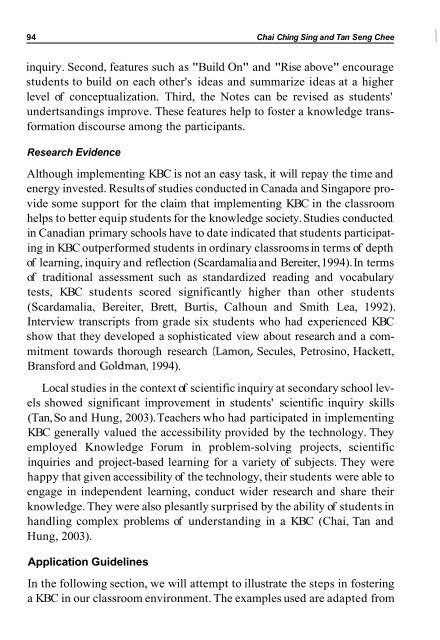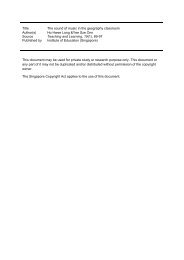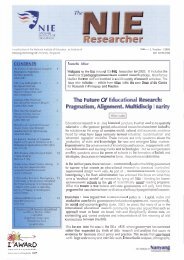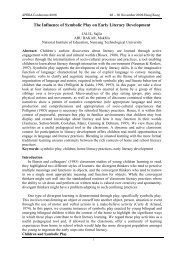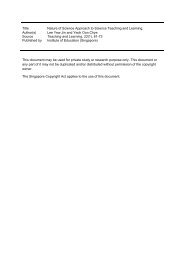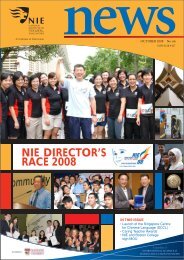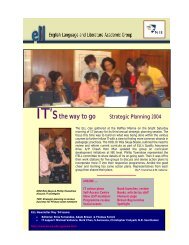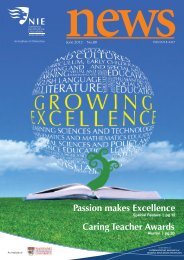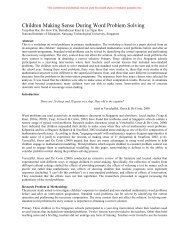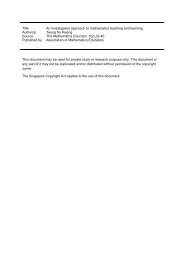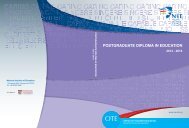Cooperative Learning - NIE Digital Repository - National Institute of ...
Cooperative Learning - NIE Digital Repository - National Institute of ...
Cooperative Learning - NIE Digital Repository - National Institute of ...
Create successful ePaper yourself
Turn your PDF publications into a flip-book with our unique Google optimized e-Paper software.
94 Chai Ching Sing and Tan Seng Cheeinquiry. Second, features such as "Build On" and "Rise above" encouragestudents to build on each other's ideas and summarize ideas at a higherlevel <strong>of</strong> conceptualization. Third, the Notes can be revised as students'undertsandings improve. These features help to foster a knowledge transformationdiscourse among the participants.Research EvidenceAlthough implementing KBC is not an easy task, it will repay the time andenergy invested. Results <strong>of</strong> studies conducted in Canada and Singapore providesome support for the claim that implementing KBC in the classroomhelps to better equip students for the knowledge society. Studies conductedin Canadian primary schools have to date indicated that students participatingin KBC outperformed students in ordinary classrooms in terms <strong>of</strong> depth<strong>of</strong> learning, inquiry and reflection (Scardamalia and Bereiter, 1994). In terms<strong>of</strong> traditional assessment such as standardized reading and vocabularytests, KBC students scored significantly higher than other students(Scardamalia, Bereiter, Brett, Burtis, Calhoun and Smith Lea, 1992).Interview transcripts from grade six students who had experienced KBCshow that they developed a sophisticated view about research and a commitmenttowards thorough research (Lamon, Secules, Petrosino, Hackett,Bransford and Goldman, 1994).Local studies in the context <strong>of</strong> scientific inquiry at secondary school levelsshowed significant improvement in students' scientific inquiry skills(Tan, So and Hung, 2003). Teachers who had participated in implementingKBC generally valued the accessibility provided by the technology. Theyemployed Knowledge Forum in problem-solving projects, scientificinquiries and project-based learning for a variety <strong>of</strong> subjects. They werehappy that given accessibility <strong>of</strong> the technology, their students were able toengage in independent learning, conduct wider research and share theirknowledge. They were also plesantly surprised by the ability <strong>of</strong> students inhandling complex problems <strong>of</strong> understanding in a KBC (Chai, Tan andHung, 2003).Application GuidelinesIn the following section, we will attempt to illustrate the steps in fosteringa KBC in our classroom environment. The examples used are adapted from


